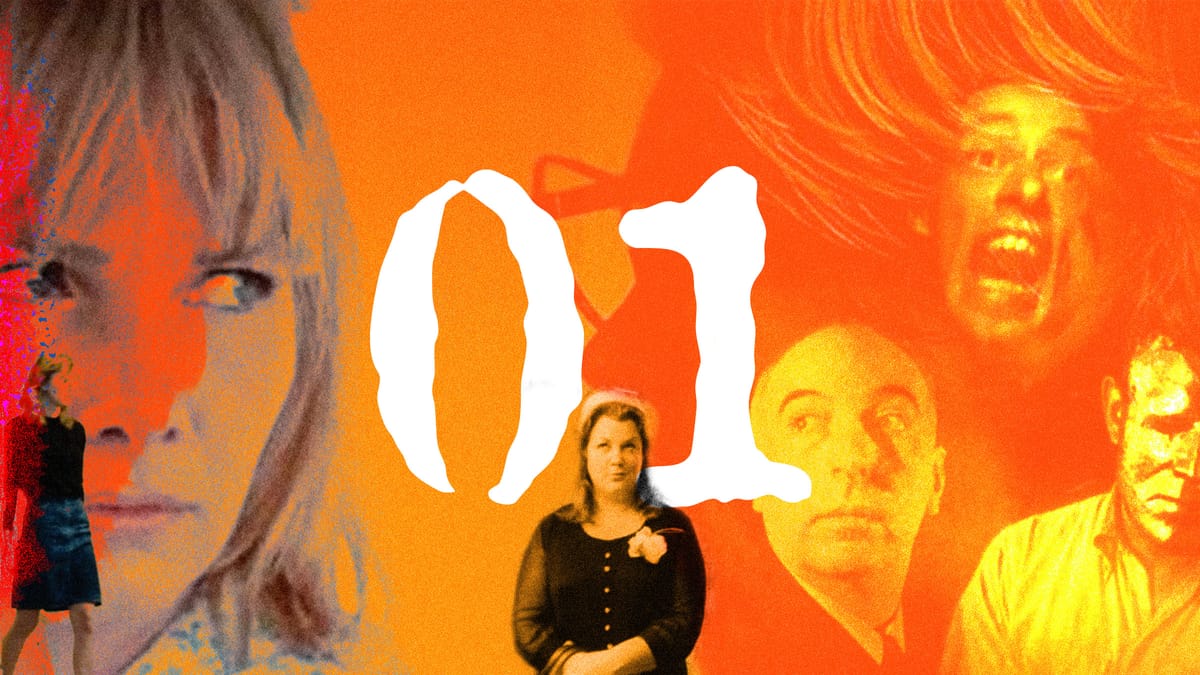On Film Criticism #13: Consensus

Artwork by Neven Udovičić
Any list of the best films of all time suggests the idea of consensus. Yet so much of creativity, both in terms of writing for the journalists voting in polls, and for the filmmakers who make the films being voted for, is about resisting consensus to instead find what it is they truly want to say or, more generally, express. That a list triggers so much outrage is the point — it is that discomfort, that gap between ourselves and others that drives change (or, at least, that should).
Four of the essays in this issue are about films whose makers, for a variety of reasons, directed little to nothing else. The sheer existence of these films is a vivid reminder of how difficult it is to make a film at all; their quality, and the fact that we still talk about them at all comes down to their singular vision, and their complete refusal to compromise.
Dans la nuit (1930) is the sole feature film from prolific French actor Charles Vanel, better known for his roles in The Wages of Fear and Hitchcock’s To Catch a Thief. Tragically, his film was essentially a victim of the times: Dans la nuit was a silent film released just as the first sound films began to appear in French cinemas. It was quickly pulled from release when sound cinema turned out to be not a passing fad, but a permanent shift. In my essay on the film, which has been restored by the Institut Lumière in Lyon and is now touring festivals, I write about what makes it not just a timeless piece of work but also an inspiring one. It deserves to be rediscovered and to find its place next to that other surreal Gothic masterpiece directed by a wonderful actor, namely Charles Laughton’s The Night of the Hunter.
Most of the films discussed in this issue were in fact directed by people first known for their work in other disciplines. Ruairí McCann writes about Samuel R. Delany’s short film The Orchid (1971), an exhilarating foray into filmmaking from a visionary science-fiction writer taking hold of the tools of cinema with contagious enthusiasm and a real understanding of the immediate power of images.
Leonard Kastle, meanwhile, was an opera composer and librettist who returned to teaching and composing after directing The Honeymoon Killers (1969), although he had written several more screenplays and reportedly tried to get some of them off the ground before he died in 2011. Actress Barbara Loden also had plans to direct more films after her groundbreaking debut Wanda (1970), but her life was cut short by illness when she was just 48. Sam Moore writes about the two films’ portrayal of deeply lonely women, who cling onto criminal men in search for an elusive kind of love and comfort, but remain forever alone.
Life on the margins of society is also the focus of Gerald Kargl’s Angst (1983), though in a rather different, more extreme register. That the film bankrupted its director, who then went into advertising in part to repay his debts, only adds to the mystique of this cult movie; it is very difficult to imagine anyone making something this violent and horrible today. Christian Craig’s essay explores the pleasures and displeasures of this incredible film about a spree killer who acts less on motive than on impulse.
After this look backwards into film history, a look forward at what I believe is an inspiring and welcome development, challenging established notions both in society and onscreen. This issue concludes with an essay I’ve long wanted to write about three recent releases which — a million miles away from Angst — boldly dare to address the role played by the family in some of the most taboo and ‘unthinkable’ behaviours of unwell young people. Juraj Lerotić’s Safe Place, Florian Zeller’s The Son and the Netflix series Dahmer - Monster: The Jeffrey Dahmer Story, all from 2022, show in different ways how the family can be a breeding ground for trauma and dysfunction, and dare to suggest that even some of the most mainstream methods of parenting or the most banal family dynamics can contribute to extreme damage. Will these three titles break through the consensus of awards season?



